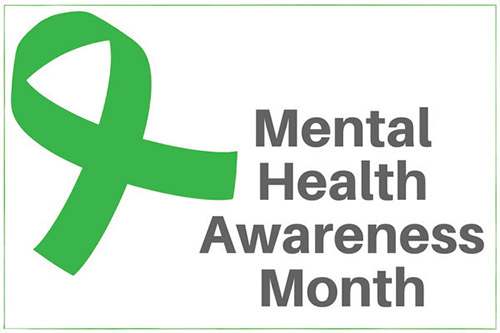
Why does our mental health matter? How do we tend to experience emotions? Do we notice them, acknowledge them or shove them aside? In my experience in the mental health field, I have discussions with my patients on these questions on a daily basis. In honor of Mental Health Awareness Month, I will review the most common misconceptions that arise in my sessions with clients:
Attending therapy means that I am weak or crazy: Unfortunately, I hear this statement often from patients of all ages and backgrounds. They enter my office with a sense of shame about being there. What I like to remind people who feel this way is that being aware enough of your emotions to realize that you need added support is a sign of strength, not weakness!
My doctor sent me to therapy because they think my symptoms are “all in my head”: A huge number of the patients I see for therapy were referred to me because they present to their doctors with physical symptoms that cannot be explained by a medical problem. These can include heart palpitations, upset stomach and dizziness among many others. The conversation I have with patients like this is that we absolutely do believe that their symptoms are real and that they are their body’s way of experiencing emotions. Once a medical basis for the problem is ruled out, we can explore other possible causes. I encourage patients to try not to see this as a sign that your doctor doesn’t believe you, but as an opportunity to explore other contributing factors with a therapist.
I can’t share my feelings with people in my community because no one will understand: While this feeling is totally valid and understandable, social connection can play a huge role in reducing symptoms of depression and anxiety. While the stigma in many Orthodox Jewish communities is real and can be alienating, I encourage people to seek social support whenever possible, even if only from one or two people. I also encourage people in Orthodox communities to begin acknowledging that some people around them are likely struggling emotionally, or supporting someone who is, and to begin reaching out in an effort to connect with and support those individuals.
In honor of Mental Health Awareness Month, Congregation Ahavat Achim in Fair Lawn is hosting it’s 1st Annual Mental Health Awareness Month seudah shelishit with a panel discussion led by mental health professionals on topics related to stigma, misconception, self-care and treatment. The panel will consist of community members Kira Batist-Wigod, LCSW, Andrea Riskin, PsyD, Aliza Kaplan, LSW, and Rabbi Ely Shestack as the moderator. It will take place on May 18, immediately following Mincha, and is located at 18-25 Saddle River Rd., Fair Lawn, NJ 07410. Everyone is welcome! Please email kira.batist.msw@gmail.com with any questions.
By Kira Batist-Wigod, LCSW
Kira Batist-Wigod is a social worker with a wide range of experience and training in cognitive behavioral therapy, trauma work and stress management. Kira specializes in treating people with chronic illnesses, depression and anxiety. She sees clients in her private practice in NYC and in New Jersey, where she also holds workshops on various topics. Kira also works at a medical center in the Bronx. Contact Kira by email at batistpsychotherapy@gmail.com or by calling 917-765-4743. You can also visit her website at www.batistpsychotherapy.com.










